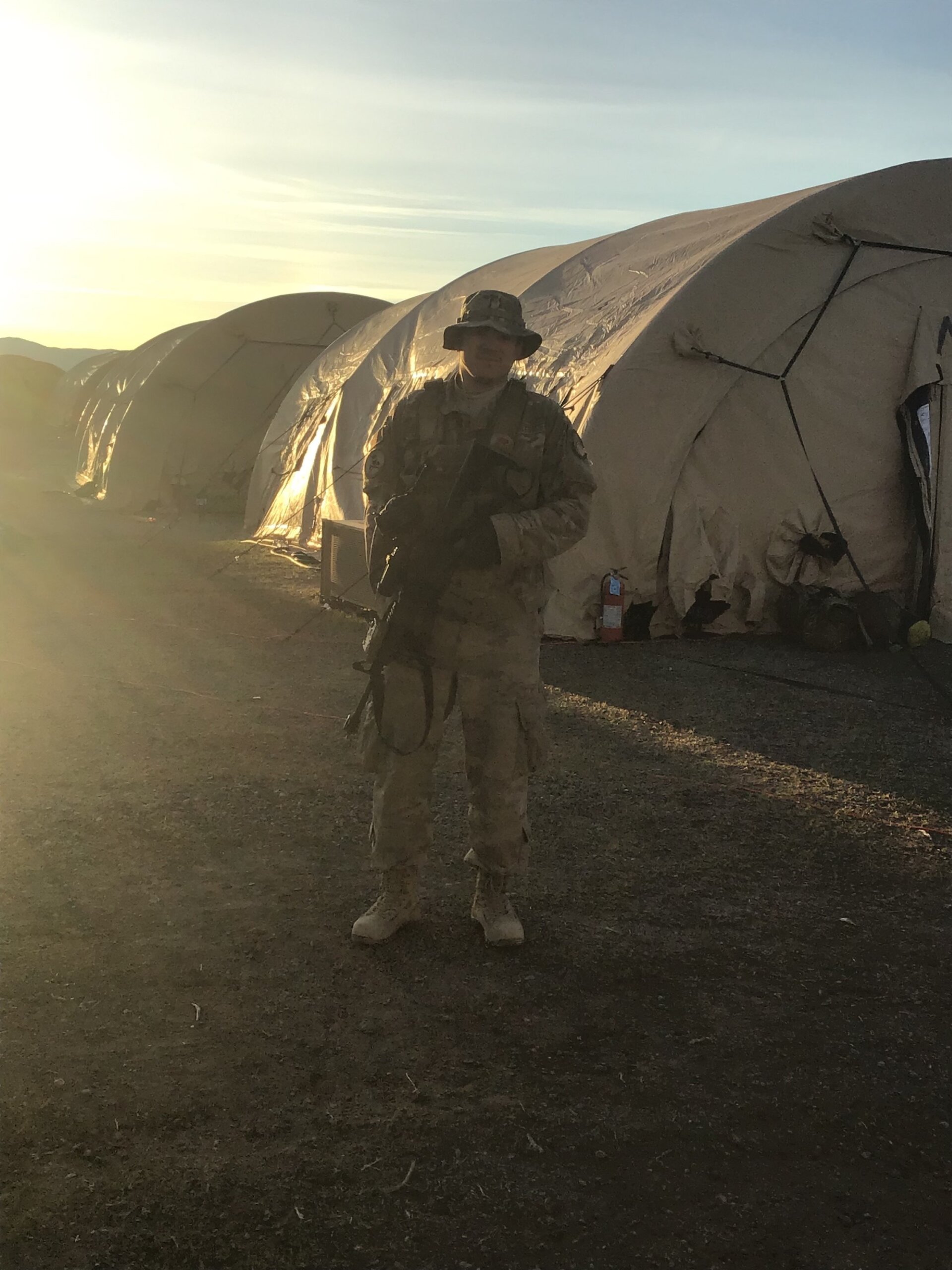Nov. 10, 2023 By Iryna Shkurhan
After leaving active duty, many veterans find themselves stumped at their next steps especially when it comes to picking a career.
Dylan DeBrosse spent four years in the Air Force where he was deployed to Germany and worked in air transportation at the Department of Defense’s busiest air terminal. When he stepped back into civilian life in 2020, the Long Island native moved to Rosedale and found himself delivering pizzas and picking up shifts as a barback. Then he heard about a union electrician apprenticeship opportunity this time last year.
“I said, ‘absolutely.’ Just because I knew all the benefits of going into the union,” said DeBrosse, who hadn’t previously considered a trade career and was planning to go back to school instead. “Now I probably won’t go back to school. I wouldn’t need to.”
For the past six months he has been living in Bayside and is currently in his second year of an electrician apprenticeship through the Building Trades Educational Benefit Fund. Since then he’s worked on projects in the Veteran Affairs hospital in Manhattan and throughout Central Park. Currently he is working on the renovation of the Queens Public Library on Bell Boulevard in Bayside.
The apprenticeship program, under the Building Industry Electrical Contractors Association (BIECA), was started by veteran Paul Tropiano, who also found himself briefly lost after leaving active duty in the Air Force where he worked in aircraft maintenance.
He struggled to find a job where he could apply the hard skills he learned from fixing up planes, but through a turn of events he found himself in a rewarding decades-long career in education. The pivot was his first example that many of the soft skills veterans leave the military with – dutifulness, punctuality and teamwork – can be applied to an array of other fields, especially blue collar jobs.
“The difficulty of choosing a career path is probably the biggest obstacle,” said Tropiano. “It’s very hard sometimes to sit down with these individuals and make them realize that it’s okay to not know what you want to do at the age of 22 or 28.”
While working as a high school vice principal at Transit Tech High School in Brooklyn, he learned that BIECA was on the lookout for a school to operate an electrical apprenticeship program out of. He ended up building the program from the ground up as a school supervisor and was responsible for creating a dynamic curriculum that emphasized hands-on learning and adapting to changes in the industry.
The five-year program trains union electricians to eventually become journeymen through 900 hours of instruction that translates to three hour night classes twice a week. The apprentices, like DeBrosse, all hold electrician jobs during the day. The employers, who are members of BIECA, contribute to the workers’ benefits, allowing the apprentices to receive the education for free.
“There’s a lot to learn in the field so I was kind of nervous that it wouldn’t be for me,” said DeBrosse, who came into the program without any electrical experience but quickly learned that there were many other novices in the program. “But I feel like I made the right choice. And I can definitely see myself doing this for the rest of my life.”

Dylan DeBrosse was stationed in both Germany and New Jersey while in active duty in the Air Force.Photo courtesy of Dylan DeBrosse
As a former veteran himself, Tropiano made sure the program stood out in its proactive approach in bringing veterans on board. They also uniquely allow veterans with prior electrical experience from their time in the military to expedite their apprenticeship by a year or two.
Tropiano also took on the informal role of guiding veterans through their career options and fitting it into their long term goals. He found that many did not know about how their skill sets could translate into a trade career, or what resources were available to them as veterans. While the military does offer career counseling for its members, he found that some have trouble trusting the system and would rather speak to someone not in uniform.
“I don’t make decisions for them. I kind of show them the buffet table and tell them, ‘listen, it’s not just eggs and potatoes,’” said Tropiano, who estimates that more than 200 veterans have come through the program to date. “The toughest part of my job is to make people realize that they have skills that they’re not aware of. They sometimes don’t see the variety of opportunities based on the skills that they have. And that I think is a societal weakness across the board.”
Those who complete the apprenticeship program are able to secure higher paying jobs with better benefits down the line. They are also on the path to become journeymen and take on leadership roles.
“It’s kind of been rewarding to see them excel, because now they’ve had they found somebody that they kind of trust,” said Tropiano. “When they hear about some of the difficulties that I ran into, and some of the choices that I made, they understand that a little better and they open up a little more.”
For DeBrosse, one of the biggest challenges of leaving the military was the loss of camaraderie.
“When you get out, you don’t realize it but the real world is not like that. You’re kind of just on your own,” said DeBrosse. “That’s definitely a big change you got to get used to.”
But he says he’s been able to find a similar sense of camaraderie with others in the skilled trades.
“When you see a stranger in a hardhat, or something like that, you feel like you can relate and have some common ground,” added DeBrosse.